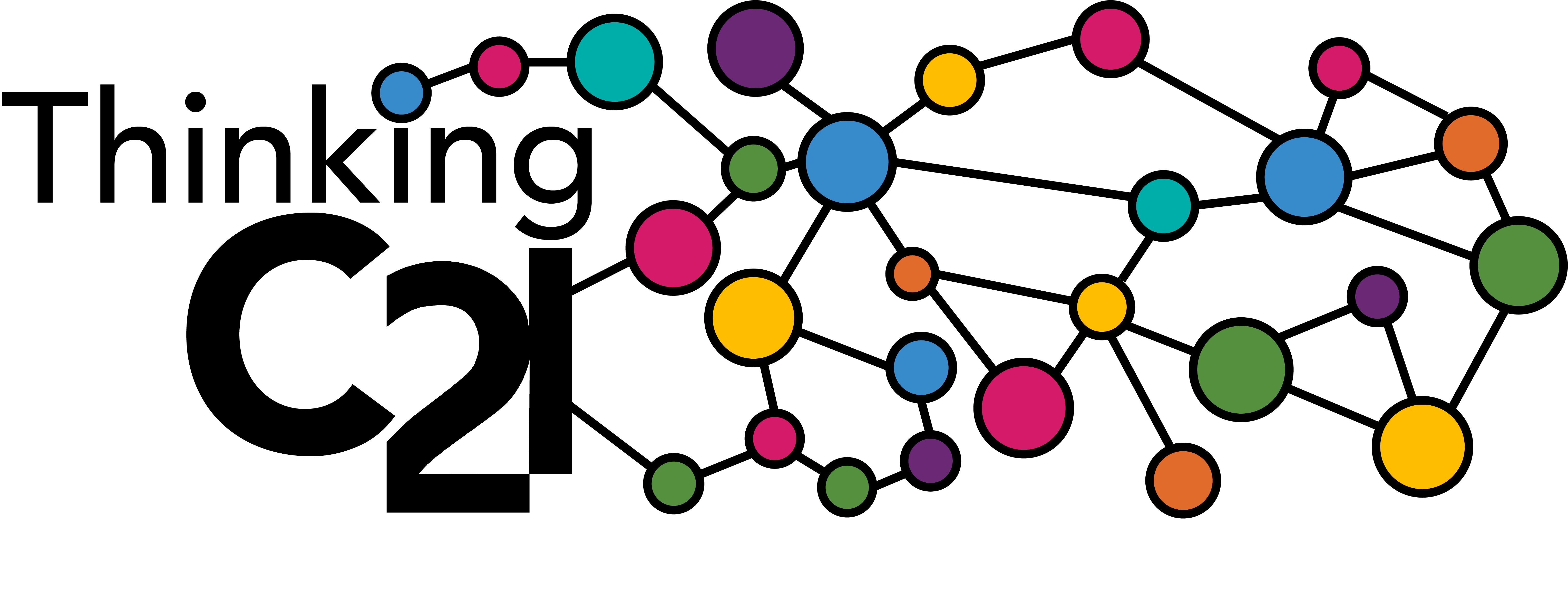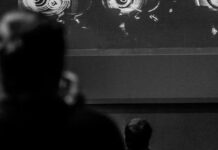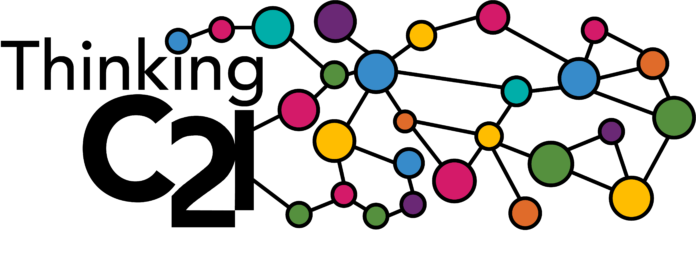By Molly McCourt
 In his presentation “On and Off the Grid: Film Narrative and the Text,” Dudley Andrew lamented the death of the “isolated, meditative pioneers like Robinson Crusoe.” In today’s narratives, filmmakers need to get characters off the grid in order to keep drama alive. Andrew cited a common trope of horror movies as an example—the isolation of the victim in a remote location. While this setting was originally created in order to instill a fear of the unknown—whether it be the darkness of the woods, an urban legend, or a rare, flesh-eating disease—the terror now revolves around a dearth of technology. Forget the site of Jason’s hockey mask; the image of zero bars on a cell phone is much more frightening in this technological moment. Further, this dependence on electronics makes it difficult to produce any films that feature a quest of any kind. If someone is “on the grid,” she cannot set off on a soul-searching mission nearly as easily as the revered heroes of road films of the 1970s. Can you imagine James Taylor and Warren Oates racing across the U.S. in Two-Lane Blacktop with the guidance of a robotic GPS device? Would Thelma and Louise be nearly as thrilling if the cops could stop the female felons by tracking their cell phone signal?
In his presentation “On and Off the Grid: Film Narrative and the Text,” Dudley Andrew lamented the death of the “isolated, meditative pioneers like Robinson Crusoe.” In today’s narratives, filmmakers need to get characters off the grid in order to keep drama alive. Andrew cited a common trope of horror movies as an example—the isolation of the victim in a remote location. While this setting was originally created in order to instill a fear of the unknown—whether it be the darkness of the woods, an urban legend, or a rare, flesh-eating disease—the terror now revolves around a dearth of technology. Forget the site of Jason’s hockey mask; the image of zero bars on a cell phone is much more frightening in this technological moment. Further, this dependence on electronics makes it difficult to produce any films that feature a quest of any kind. If someone is “on the grid,” she cannot set off on a soul-searching mission nearly as easily as the revered heroes of road films of the 1970s. Can you imagine James Taylor and Warren Oates racing across the U.S. in Two-Lane Blacktop with the guidance of a robotic GPS device? Would Thelma and Louise be nearly as thrilling if the cops could stop the female felons by tracking their cell phone signal?
Andrew suggested that the location of the elevator in film battles this interactive web of our world and interconnectivity. He claimed that the vertical movement of this “magic box for story”[1] directly confronts the swirling motion of this amorphous web. While I don’t necessarily disagree with this analogy, I want to another idea to this desire to escape the world of cell phones, iPads, and the infamous grid. Could it be that filmmakers are noticing this lack of narrative in the technological age and combating it with time travel in movies? Why do we need to isolate the characters thousands of miles from a cell phone tower when we can just make an excuse to revisit the swinging 1960s?[2] So many people have accused Hollywood of steeping itself in nostalgia lately, blaming this desire for the past for the death of original narratives in film. Some scholars even criticized Andrew’s presentation as being too nostalgic itself. Isn’t it possible that this need to escape the grid, to return to a less electronic age is directly causing this era of the remake and retro in Hollywood?
[1] Abbas Kiarostami’s term
[2] This idea is admittedly colored by the fact that I recently saw the trailer for Men in Black 3, and I am okay with that.
[Molly McCourt is a first year PhD student in the Media, Cinema, and Digital Studies track in the English department at UW-Milwaukee. Her research interests include intertextuality, Bakhtinian carnival, and constructions of gender and sexuality in 20th and 21st century film, television, literature, and pop culture. She is participating in English 820 this spring (a course where you get credit for attending C21 events, among other things) and continues to enjoy it immensely]





